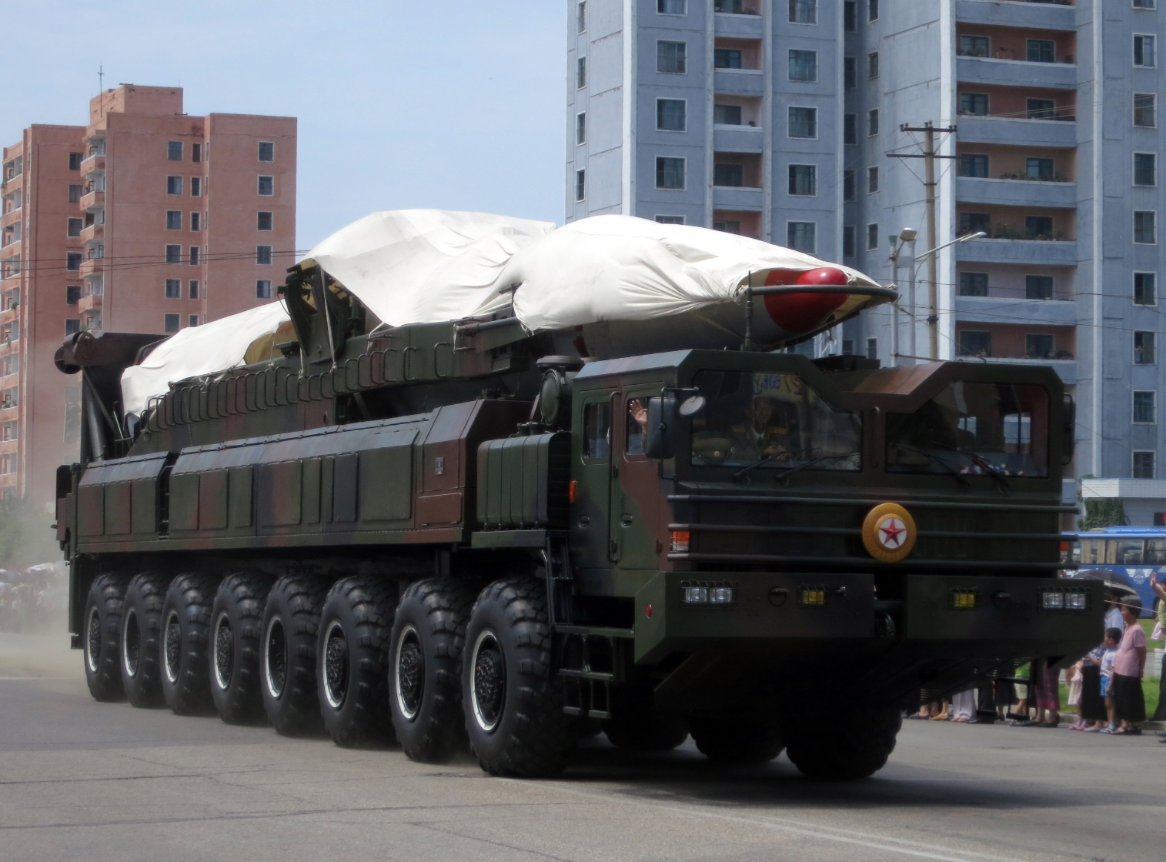A Bad Romance: Trump & Kim’s Nuclear Flirtation

By Austyn Close (BA History and International Relations)
The Trump vs. Kim scenario is a constantly unfolding war of words between the two leaders. In recent weeks, we have heard exchanges that have ruffled the feathers of the two strong-minded and aggressive figureheads. One-liner tag lines have been regurgitated through media platforms and superficially facilitated into gags laughed at by people all across the world in social media mediums. “Rocket man” and “dotard” seemingly drawing attention from all corners of society not even relatively interested in international affairs. The conflict has been a long-awaited and a slow drive towards the current situation that we are in.
The North Korean state, formally known as the DPRK (Democratic Republic of Korea), founded by Kim Il-Sung in 1948 in the years after World War II is a nation steeped in Cold War Communist ideology. Its allies at this point in Cold War History were primarily Red China and the Soviet Union. The North’s counter-part, The Republic of Korea (South Korea) shines still to this day as a beacon of shimmering capitalism exhibiting a hyper-modern society teamed with expertise in technological innovation and trade.
The case with North Korea since its creation has been a stark contrast from the South’s progressive boom in economics, population and democratic politics. Considered a “rogue state” by political scientists since the 1990’s, the Korean peninsula has never settled a treaty to end the “nastiest little war” in the 21st century; The Korean War. Three million people died in the space of three years. The North has therefore been a volatile blip in the East Asian sphere where diplomatic relations are either futile or non-existent. China is currently its only diplomatic ally on which it relies heavily in order to export and import vital resources. The KPA (North Korea’s national army) is a seriously out-dated and crumbling force of aggression for a state that is steeped in aggressive interaction in the global scene.
Prior to Donald Trump’s ascension to US President, North Korea’s nuclear testing programme was banned with multiple sanctions placed against the state. North Korea in the eyes of the United Nations and the rest of the Free World cannot see a state as reckless as North Korea to have access to nuclear-fuelled devastation.
Now with Donald Trump instigated in the White House, the escalation of fiery rhetoric has passed the point of comfort for many across the world since January 2017. On-lookers are beginning to speculate of an all-out-war between the global hegemon; the US and the isolated North Korean state. Since January, Trump’s callous comments towards the dictator have spurred the egotistical spirit of Kim Jong-Un into actively rebelling against the multiple sanctions placed against it by firing nuclear test missiles into the Sea of Japan and recently even over the Japanese mainland. Fifthteen tests to be exact have taken place over 2017 already. One thing is for sure, North Korea means business and have successfully carried a nuclear warhead on an ICBM which apparently can reach “anywhere in the world”.
While Trump may talk down North Korea and its deranged leader, he underestimates the utter strength of an unreliable state acquiring a nuclear weapon which can cause 10x more the devastation as Hiroshima and Nagasaki. Trump therefore should watch his words on these unfolding events due to the significance of millions of people’s lives potentially in danger. The BBC has already tried to envision what war could be like, forecasting that 3 million people could die within the first few hours of war between North and South on the Korean Peninsula.
During a United Nations conference, North Korean diplomats walked out with enraged fury at Trump’s remarks and the treatment at which he was inflicting upon their great leader in official speeches. But one concern Trump should also consider is that there are 25 million people under Kim’s tyrannical control and a further 55 million across the demilitarised zone in the South whose fates lie in waiting if tensions keep rising.
But what does North Korea want? Longevity of their regime? Proof of their capabilities as a regional player? Many attribute the North’s hostile front to the international community’s harsh critique of the state in accordance to their human rights crimes and disillusioning their population about the world outside the North’s barbed wire borders.
What does the US want therefore? Like many dictators before, the US are prone to loathe the existence of a regime/leader which they have no sway in directing. Those like Gaddafi, Hussein and perhaps Castro in a sense, all can be perceived as thorns in the US’ side in their globalising mission. The ego which Trump has gained from rising to Presidency has not helped the handling of situations which the US state as a whole find aggravating. In the last week, North Korean hackers based in China unearthed a scheme to assassinate Kim that was in the works by the US and South Korea. Possibly in reaction to this and the months of provocative dialogue, North Korea has bounced back in the war of words lately with: “Trump has lit the wick of war”. Is there no retreat from what appears to be a long-awaited breaking point or can the two strong-minded leaders come to any reconciliation? Or alternatively, is this yet another hollow comment which has characterised the status-quo in the Korean peninsula for quite some time now?




